It’s that time of year again (summertime, holidays, excitement!) when I can hardly contain my inner grouch. Everything is a Buster ... bonk-, bunny-, block- and so on. Book lists proliferate, making it clear that a lot of people only read on a beach (or at Christmas).
I think beaches are for avoiding and Christmas is for grumbling. Reading, on the other hand, is one of life’s great pleasures and needs no encouragement. Just do it.
This summer my off-the-beach bugbear is Hemingway and can be summed up in a single word: Why?
For a growing number of people it takes 3 sentences to explain him: “He was selfish and egomaniacal, a faithless husband and a treacherous friend. He drank too much, he brawled and bragged too much, he was a thankless son and a negligent father. He was also a great writer,” Prof Angela O’Donnell. Or you can have it in one: Great writer, shame about the man.
In recent years Hemingway’s character and grand-standing private life have taken a battering. Now, amidst the wreckage of character assassination, just the mighty wordsmith is left standing: Hemingway the Great Writer.
More Like This
Well, maybe. Back in the heyday of hard-living literary narcissists, Hemingway had rivals. Among them was Negley Farson, an all-American adventurer, iconoclast, much-loved author, arms dealer, star foreign correspondent, fly fisher, sailor and raging alcoholic who ended his days in oblivion (drunk in rural England).
When both men died in 1960/1, Hemingway ruled the roost. Not now. Online, Farson’s Going Fishing is out-selling Hemingway’s Big Two-Hearted River by 4:1. This is an unreliable snapshot taken as I write this, but it’s well deserved. And while students buy Hemingway because they must — he’s on the syllabus — people read Farson because they want to. They do it because Going Fishing is one of the finest fishing books ever written and because Farson’s non-fishing books, once best sellers, are also on a bounce. Buy one and you’ll want to read more.
Farson was a glorious, swaggering misfit. Born in 1890 and raised in New Jersey by his grandfather, a cantankerous Civil War general, he lived for writing, drinking, travelling and fishing. And then again.
He was a First World War pilot for the British and then headed to Russia for the Revolution as an arms dealer. He was a rock star among American foreign correspondents back when foreign correspondents were household names, interviewed Hitler and reported from Germany as a Nazi mob stormed the Reichstag and felled German democracy. He witnessed Ghandi’s arrest by the British, was there to see John Dillinger’s corpse and, in-between times, there were Franco, Mussolini and global travel by boat, donkey and on foot.
He modestly billed his 1942 ‘Going Fishing’, as “just the story of some rods and the places they take you to." It arrived, as only a Farson book could, with a review by fishing writer and fighter pilot Hugh Falkus. This might seem routine, but Falkus was incarcerated in Oflag IV-C, better known as Colditz; the prisoner-of-war camp where the Nazis locked up Allied troublemakers. ‘Going Fishing’ got into Colditz.
Farson drank Hemingway under the table, partied with F Scott Fitzgerald and confessed “I would never have believed it if anyone had told me so; but even the sight of a nude girl at the piano was beginning to pall.” More Hemingway than Hemingway you might think, and you’d be right.
Yet Farson is cursed by Hemingway’s shadow. Even his biography was patronisingly titled “Almost Hemingway”. This was as undeserved as it was offensive and wrong; Farson was the real deal while Hemmingway was striking a pose.
Both men were headstrong and deeply flawed characters who learned their craft in newspaper journalism. Hemingway picked up his minimalist ‘Iceberg Theory’ of writing as a junior reporter at the Kansas City Star. The paper’s newsroom stylebook (a feature of newsrooms worldwide) laid out a modest set of rules which I’ll rehash briefly: Write stripped-down sentences using Anglo-Saxon words. Take care with adjectives because they can reveal more about the writer than the subject. For a modern take on this see the Economist Style Book, available from Amazon and good bookstores. These rules are timeless and are as true today as they were then.
It’s also a long and well-trodden path. Here’s another former journalist: “We shall fight on the beaches, we shall fight on the landing grounds, we shall fight in the fields and in the streets, we shall fight in the hills; we shall never surrender.” Only Churchill’s last scornful word is French. Read it out loud and Google the speech for a masterclass.
Churchill’s words are as fresh now as they were in the darkest hours of the early 1940s. Likewise, Farson’s writing still leaps effortlessly off the page with the direct, no-nonsense clarity of a celebrated newsman honed on the Chicago Daily News, then a world-leading newspaper orbiting high above the Kansas City Star.
Yet, in contrast to Farson and Churchill, Hemingway’s writing can sound pretentious (a French word, of course) to modern ears. For example, the grating and self-indulgent repetitions:
“The trunks of the trees went straight up or slanted toward each other. The trunks were straight and brown without branches. The branches were high above.”
— The Big Two-Hearted River
For modern readers, Hemingway has lost his fizz. Much of what once seemed innovative is now tired, and those repetitions wouldn’t have passed the sub-editors' desk in Kansas.
Then there’s the image: Hemingway’s projected mid-life persona was aspirational for the age he lived in. But, nowadays, strong storylines and tight prose amount to nothing set against all those gloating pictures. The great white hunter, the slaughtered Marlin and machine-gunned shark are seared into our collective psyche. He’s the journalist who claimed to have killed German prisoners of war. That would be murder. So a new generation of readers think he’s the braggart poster boy for toxic masculinity and misogyny. That some of his writing is still great doesn’t matter. A trashed image trumps everything and that this is self-inflicted makes it worse.
So, if you’ve never read Negley Farson, please do. For the many who have, including me, Going Fishing is the finest autobiographical fishy book in a crowded field. His friend, F Scott Fitzgerald, confessed that while he had relied on imagination for compelling stories, Negley could simply draw on life.
Farson is still a great writer with an indelible legacy. And he’s long overdue a return to the limelight.
So, to whoever writes his next biography, the correct title is “Better than Hemingway”.
“Farson lived each day as if it were a door that needed kicking in.“ Rex Bowman, co-author of “Almost Hemingway”, getting it right.
Why Hemingway? I don’t know — no good reason I can think of. But I can tell you why Farson: He’s a great writer who has passed the test of time.

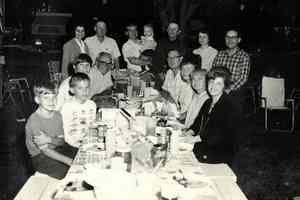




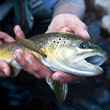














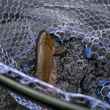



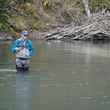


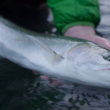

Comments
LARRY RICHARDSON replied on Permalink
Was this review about Farson, Hemingway or Wilson?
Pages